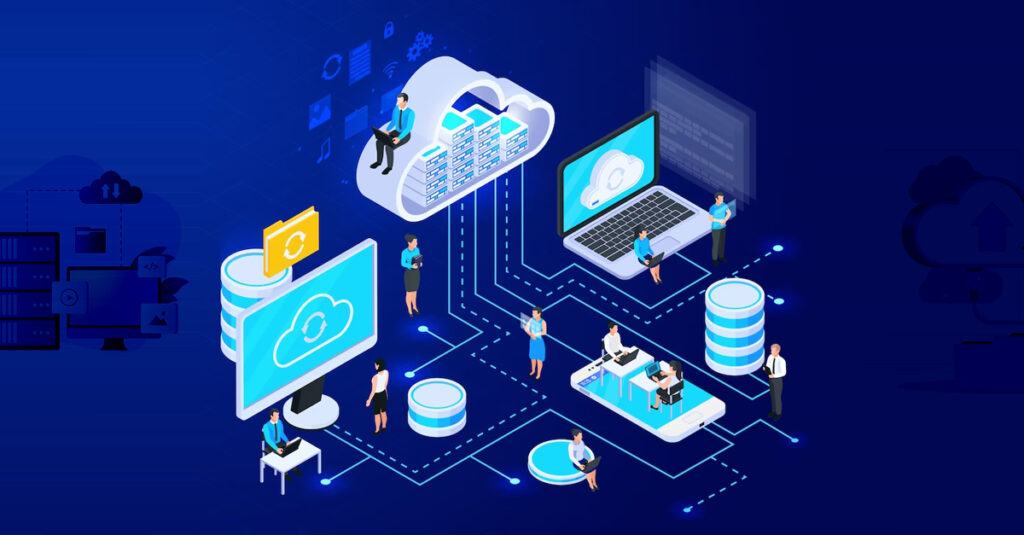In today’s rapidly evolving technological landscape, the adoption of cloud computing has become a cornerstone for businesses seeking agility, scalability, and cost-efficiency. Cloud migration, the process of shifting applications, data, and infrastructure to cloud environments, has become a strategic imperative. However, navigating the complexities of cloud migration requires expertise and a well-thought-out plan. This is where IT consulting plays a pivotal role. In this article, we will explore the challenges and complexities of cloud migration, the role of IT consulting in addressing them, and the various aspects of cloud migration where consulting services are indispensable.
Understanding Cloud Migration
Cloud migration refers to the process of moving various aspects of an organization’s computing resources, including data, applications, and infrastructure, from on-premises environments to cloud-based ones. The significance of this shift lies in the potential to enhance scalability, reduce costs, and improve overall efficiency.
Cloud computing offers different deployment models, including public, private, and hybrid clouds. Public clouds are operated by third-party providers and are accessible to multiple organizations, while private clouds are dedicated to a single organization, offering more control and security. Hybrid clouds combine elements of both public and private clouds to meet specific business needs.
There are several compelling reasons why businesses opt for cloud migration. These include:
- Cost Savings: Cloud computing reduces the need for on-premises infrastructure, leading to lower hardware and maintenance costs.
- Scalability: Cloud environments allow businesses to easily scale resources up or down to meet changing demands.
- Flexibility: Cloud services offer a wide array of tools and services that can be tailored to an organization’s specific needs.
- Disaster Recovery: Cloud-based backups and disaster recovery solutions provide robust data protection.
- Enhanced Collaboration: Cloud-based tools facilitate collaboration among geographically dispersed teams.
The Need for IT Consulting

Source: blogs.perficient.com
Cloud migration can be a complex and challenging endeavor. Factors such as data security, compliance, application integration, and performance optimization need careful consideration. This complexity is why businesses often turn to IT consultants for guidance.
IT consultants bring a wealth of experience and expertise to the table. They understand the intricacies of cloud platforms, stay updated on the latest trends, and possess the technical know-how to design and implement effective migration strategies. IT consulting Troy providers offer several invaluable benefits during cloud migration:
- Expert Guidance: Consultants provide expert guidance, ensuring that migration plans align with business goals.
- Risk Mitigation: They identify and mitigate potential risks and challenges, reducing the likelihood of costly setbacks.
- Cost Efficiency: Consultants help optimize cloud spending, ensuring resources are used efficiently.
- Streamlined Processes: Their experience accelerates the migration process, reducing downtime and disruptions.
Assessing Cloud Readiness
Before embarking on migration, businesses should assess their cloud readiness. This involves evaluating the organization’s:
- Current infrastructure and applications.
- Objectives for cloud adoption.
- Existing skill sets within the workforce.
A readiness assessment helps set clear goals for the migration process. Each organization has unique goals for migrating to the cloud. These may include improving scalability, reducing costs, enhancing data security, or achieving greater agility. Consultants work with businesses to define these objectives clearly.
Assessing the existing IT landscape is crucial. Consultants evaluate which applications can be migrated directly to the cloud, which may require modification, and which should remain on-premises. This evaluation informs the migration strategy.
Cloud Strategy and Planning
A well-defined strategy is essential for a successful migration. Consultants collaborate with businesses to develop a comprehensive plan that outlines:
- The sequence of migration.
- Resource allocation.
- Data migration strategies.
- Contingency plans for potential issues.
A detailed migration plan with timelines ensures that the process stays on track. IT consultants assist in creating these plans, breaking down the migration into manageable phases to minimize disruptions. An effective cloud strategy aligns with the broader business objectives. IT consultants ensure that the chosen cloud solutions support and enhance these goals.
Vendor Selection and Cloud Service Models
Selecting the appropriate cloud service provider is a critical decision. Consultants help businesses assess their needs and choose providers like AWS, Azure, or Google Cloud that align with their requirements.
IT consultants aid in determining the appropriate cloud service model-Infrastructure as a Service (IaaS), Platform as a Service (PaaS), or Software as a Service (SaaS)-based on the specific needs of the organization and the applications being migrated.
Examining real-world examples of businesses that have successfully selected cloud vendors and service models can provide valuable insights into the decision-making process.
Data Migration and Security

Source: esquare-software.com
Migrating data to the cloud requires meticulous planning. IT consultants assist in devising data migration strategies that ensure minimal data loss and downtime.
Data security is paramount. Consultants implement robust security measures to protect data during migration and in the cloud environment, addressing concerns about data breaches and compliance.
Case studies of organizations that have securely migrated their data to the cloud can inspire confidence in the migration process.
Application Migration and Integration
Application migration involves assessing, adapting, and relocating software to the cloud. Consultants help businesses determine which applications are cloud-ready and execute the migration process. Integration between cloud and on-premises systems is essential for seamless operations. IT consultants design integration solutions that ensure applications work harmoniously. Examining success stories can highlight the benefits of application migration and integration, such as improved efficiency and reduced operational costs.
Performance Optimization and Cost Management
Cloud environments require continuous monitoring and optimization to maintain efficiency. IT consultants implement tools and practices to ensure optimal performance. Cloud costs can escalate if not managed carefully. Consultants help organizations control spending by identifying cost-saving opportunities and optimizing resource allocation. IT consultants provide ongoing support and recommendations for performance optimization and cost management, ensuring that the cloud environment remains efficient and cost-effective.
Risk Assessment and Mitigation
Migration projects are not without risks, including data loss, application compatibility issues, and operational disruptions. Consultants conduct risk assessments to identify potential pitfalls. Once risks are identified, consultants work with businesses to develop mitigation strategies. This proactive approach minimizes the impact of unforeseen challenges. IT consultants specialize in risk assessment, helping organizations make informed decisions and avoid costly mistakes during migration.
Compliance and Regulatory Considerations

Source: efuturesworld.com
Many industries have strict compliance regulations. Consultants ensure that cloud solutions adhere to industry-specific compliance standards, such as HIPAA or GDPR. Consultants implement necessary security measures and protocols to ensure that data and operations comply with relevant industry regulations. Successful cases of businesses achieving compliance in the cloud underscore the importance of consulting services in meeting regulatory requirements.
Training and Change Management
Transitioning to the cloud often requires a shift in skills and processes. Consultants facilitate employee training to ensure that staff can effectively use new cloud tools and platforms. Change management is essential to ensure that employees adapt to new processes and workflows. IT consultants guide organizations through this transition. Consultants provide tips and best practices for achieving a smooth transition to the cloud, minimizing disruptions and maximizing user adoption.
Continuous Support and Optimization
Cloud management is not a one-time task but an ongoing process. IT consultants offer continuous support, monitoring, and optimization to ensure that the cloud environment evolves with the organization’s needs. Regular monitoring of cloud resources helps identify opportunities for improvement. Consultants make recommendations for adjustments based on usage patterns and evolving requirements.
Final Thought
In a rapidly evolving tech landscape, Leet Services has been your trusted partner since 2004. Our passion for technology and dedication to helping businesses in Southeast Michigan thrive have been the driving force behind our success. As you embark on your journey towards modern solutions and cloud migration, remember that Leet Services is here to guide you every step of the way. Contact us today and let’s shape the future of your business together.



